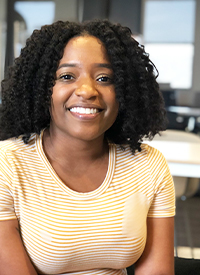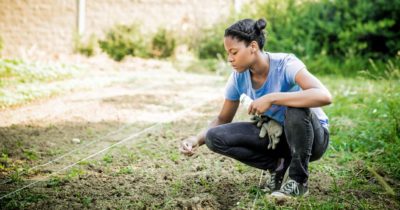by Tashi Copeland
—communications manager

Tashi Copeland
As people around the globe are tuning in for the 2021 Olympics in Tokyo, there’s a variation that rewards no medals yet many insist on competing—Oppression Olympics.
The first recorded use of the phrase was by Elizabeth “Betita” Martínez in a 1993 conversation with activist Angela Davis. Oppression Olympics is the idea that marginalization is a competition of determining the relative weight of overall oppression of individuals or groups, based on identity. Simply put, it’s comparing who has it worse.
Over the past year, we’ve seen this play out quite frequently in our society. Whether it was the rhetoric of the anti-Asian hate movement vs. Black Lives Matter or the gay community vs. the trans community, there have been several instances where identities of minorities were pitted against each other. This, my friend, is extremely counter-productive.
In a world where people try to say racism and sexism are not engrained into the very foundation of this nation, we cannot exert another ounce of energy amongst ourselves trying to deem who has it worse.
The fact is, racism in this country is real. Sexism is real. INTERSECTIONALITY is real. In a world where people try to say racism and sexism are not engrained into the very foundation of this nation, we cannot exert another ounce of energy amongst ourselves trying to deem who has it worse. That’s not a solution. That’s a problem in itself.
If we’re really going to dismantle these systems and build an equitable community, we have to realize that working together has always been the stepping-stone to success. The pioneering work of the civil rights and women’s rights movements to pass the Civil Rights Act in 1964 and expand its scope paved the way for the LGBTQ+ nondiscrimination cases. Loving vs. Virginia paved the way for Obergefell vs. Hodges. Our legal history has carved out a roadmap and set precedent for others to succeed in the future.
Systems of oppression and its participants succeed when we fight against one another. We do the job of oppression for them.
We cannot continue the failure of remembering what got America to this place of identity-hierarchy and scarcity-mentality in the first place—the culture of White supremacy. Oppression Olympics is harmful to all groups experiencing oppression because it helps empower White supremacy while we tear each other down. Speaking out for one community does not mean the denial of another group’s oppression. Take people’s lived experiences at face value and truly listen—instead of simply waiting for a pause to respond. Systems of oppression and its participants succeed when we fight against one another. We do the job of oppression for them. We dismiss the power of our coalition away and give it to those whose boots are on all our necks. When instead we can band together and share the lessons of each of our wins and support each other in each of our losses.
So what I’m asking is that we take a page out of Simone Biles’s book and gracefully bow out of this game. The Oppression Olympics torch has been burning for far too long, and it’s time to put it out. And we—all oppressed groups fighting the -isms and -phobias of this nation—must recognize there’s not just one gold medal for liberation and freedom.






Leave A Comment